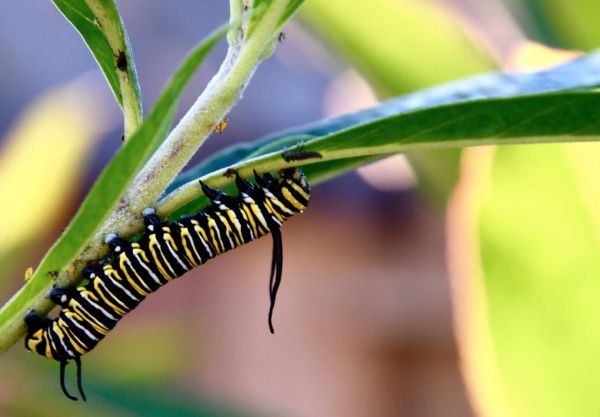Notwithstanding last month’s cold snap in Texas and Louisiana, climate change is leading to warmer winter weather throughout the southern U.S., creating a golden opportunity for many tropical plants and animals to move north, according to a new study appearing this week in the journal Global Change Biology.
Some of these species may be welcomed, such as sea turtles and the Florida manatee, which are expanding their ranges northward along the Atlantic Coast. Others, like the invasive Burmese python — in the Florida Everglades, the largest measured 18 feet, end-to-end —maybe less so.
Equally unwelcome, and among the quickest to spread into warming areas, are the insects, including mosquitoes that carry diseases such as West Nile virus, Zika, dengue and yellow fever, and beetles that destroy native trees.
Read More: University of California - Berkeley
A monarch butterfly caterpillar. Monarchs are intolerant of freezing weather, and typically overwintered in Mexico. They now are overwintering in California, thanks to milder winter temperatures. (Photo Credit: Noah Whiteman, UC Berkeley)


